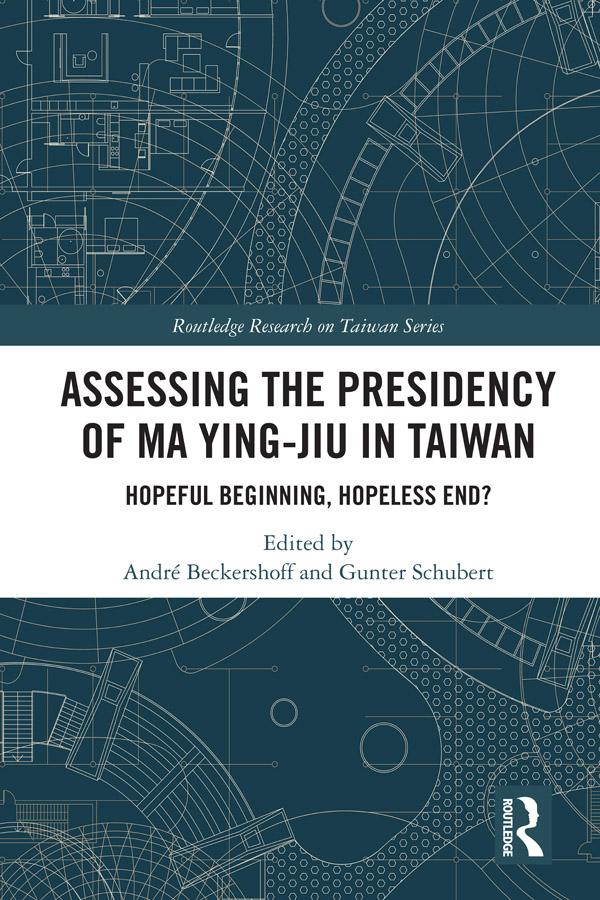
Sofort lieferbar (Download)
This book undertakes an empirical assessment of the achievements and failures of the Ma Ying-jiu era. Renowned Taiwan scholars analyse the political environment that shaped the Ma presidency, covering important topics such as Taiwan's nationalism and societal activism, cross-strait integration and the factors determining its 'international space'.
Inhaltsverzeichnis
Introduction, André Beckerhoff and Gunter Schubert
Part I Domestic Politics
1. The KMT's China Policy: Gains and Failures, Jon Sullivan and James Smyth
2. The DPP's China Policy before and during the Ma Ying-jiu Era, Gunter Schubert
3. Taiwanese Nationalism in the Age of Cross-Strait Integration - Predominance and Pragmatism in the Ma Ying-jeou Era, Liao Da-chi, Liu Cheng-shan and Chen Bo-yu
4. Economic Interests or National Sovereignty: Public Opinion on the Cross-Strait Dilemma during the Ma Ying-jeou Era, Chen Chih-Jou
5. The Rise of Civil Society Activism in the Ma Ying-jeou Era: The Genesis and Outcomes of the Sunflower Movement, Ho Ming-sho
6. Desirability and Accountability in the Governance of Immigration under the Ma Administration, Isabelle Cheng Part II Cross Strait Political Economy
7. Opportunities and Pitfalls of Cross-Strait Economic Integration in the Ma Ying-jeou Era: Taiwan after the ECFA, Tung Chen-yuan
8. Chinese Investment in Taiwan in the Ma Ying-jiu Era: the Opportunities and the Risks, Lee Chun-yi
9. The Drift: Industrial Policy under President Ma, Douglas B. Fuller
10. The Political Economy of Cross-Strait Rapprochement - Anatomy of a Hegemonic Project, André Beckershoff
Part III International Relations
11. More International Space for Taiwan or Less?, Huang Kwei-Bo
12. Taiwan's Soft Power and Public Diplomacy Under Ma Ying-jeou, Gary D. Rawnsley
13. Cross-Strait Détente? The Evolution of the US Taiwan-China Triangle in the Ma Ying-jiu Era, Lin Cheng-yi
14. Managing Territorial Nationalism in the South and East China Seas: The Ma administration's approach, Chen Mumin
Part I Domestic Politics
1. The KMT's China Policy: Gains and Failures, Jon Sullivan and James Smyth
2. The DPP's China Policy before and during the Ma Ying-jiu Era, Gunter Schubert
3. Taiwanese Nationalism in the Age of Cross-Strait Integration - Predominance and Pragmatism in the Ma Ying-jeou Era, Liao Da-chi, Liu Cheng-shan and Chen Bo-yu
4. Economic Interests or National Sovereignty: Public Opinion on the Cross-Strait Dilemma during the Ma Ying-jeou Era, Chen Chih-Jou
5. The Rise of Civil Society Activism in the Ma Ying-jeou Era: The Genesis and Outcomes of the Sunflower Movement, Ho Ming-sho
6. Desirability and Accountability in the Governance of Immigration under the Ma Administration, Isabelle Cheng Part II Cross Strait Political Economy
7. Opportunities and Pitfalls of Cross-Strait Economic Integration in the Ma Ying-jeou Era: Taiwan after the ECFA, Tung Chen-yuan
8. Chinese Investment in Taiwan in the Ma Ying-jiu Era: the Opportunities and the Risks, Lee Chun-yi
9. The Drift: Industrial Policy under President Ma, Douglas B. Fuller
10. The Political Economy of Cross-Strait Rapprochement - Anatomy of a Hegemonic Project, André Beckershoff
Part III International Relations
11. More International Space for Taiwan or Less?, Huang Kwei-Bo
12. Taiwan's Soft Power and Public Diplomacy Under Ma Ying-jeou, Gary D. Rawnsley
13. Cross-Strait Détente? The Evolution of the US Taiwan-China Triangle in the Ma Ying-jiu Era, Lin Cheng-yi
14. Managing Territorial Nationalism in the South and East China Seas: The Ma administration's approach, Chen Mumin
Produktdetails
Erscheinungsdatum
20. Mai 2018
Sprache
englisch
Seitenanzahl
358
Herausgegeben von
André Beckershoff, Gunter Schubert
Verlag/Hersteller
Kopierschutz
mit Adobe-DRM-Kopierschutz
Produktart
EBOOK
Dateiformat
EPUB
ISBN
9781351045094
Entdecken Sie mehr
Bewertungen
0 Bewertungen
Es wurden noch keine Bewertungen abgegeben. Schreiben Sie die erste Bewertung zu "Assessing the Presidency of Ma Ying-jiu in Taiwan" und helfen Sie damit anderen bei der Kaufentscheidung.









